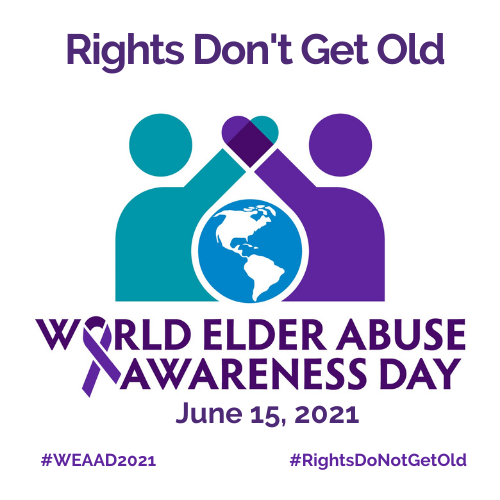Older people have always occupied a significant place in Trinbagonian society. They play active and often primary roles in the rearing of grandchildren, serve as community leaders and peacemakers and can be counted on to provide and pass on life skills and priceless pearls of wisdom to the next generation. Unfortunately, after having contributed handsomely to their families and the wider society throughout their lives, many become victims of the most demeaning and degrading forms of mistreatment, often at the hands of their loved ones.
World Elder Abuse Awareness Day highlights this disgraceful and pervasive social ill experienced by approximately one in six older persons globally. Many cases of abuse go unreported and undetected, due in part to the culture of shame and secrecy that silences victims and harmful stereotypes which paint older persons as more expendable than other groups.
Elder abuse has many forms, but in the age of Covid-19, a particularly troubling manifestation is the failure to plan inclusively for the elderly. In the pivot to online services and other new ways of doing business, many senior citizens who are not equipped with technological know-how or devices have been left behind or exposed to financial exploitation by their relatives, friends or even strangers at the ATM. To reduce this risk, banks and other financial and public institutions must redouble their efforts to make their systems and services more accessible and accommodating to older adults.
The recent, appalling display of disregard for our senior citizens which left them standing—and when they could no longer stand, sitting—on the ground unshielded from the elements lining the nation’s roads is a less than subtle form of elder abuse. Conditions that would have been traumatic for the young were visited upon our senior citizens; I could not help but think how my own 92-year-old mother would have fared in those circumstances. I take the opportunity to thank the thoughtful and compassionate citizens who provided chairs for them to rest their weary bones as they waited—some in vain—for the opportunity to be vaccinated.
While we dig ourselves out of this Covid-19 hole, let us all be alert to the forms of elder abuse that might arise during this crisis. Every sector of society has a part to play. Caregivers, beset with their own problems, must ensure that their personal challenges do not affect the quality of care they offer to their charges. Social service providers, many of whom already give yeoman service, must be even more patient and understanding with their clients who may be struggling to adjust to fast-changing protocols. Our stressed and overworked police officers have heartened the nation in recent times with displays of compassion for the elderly whose mobility is compromised by the effects of ageing.
And where elder abuse is suspected or detected, members of the public must do their part and report these cases to the Older Persons Information Centre hotline at 800-OPIC (6742). On this World Elder Abuse Awareness Day, let us make treating older persons with care and respect a priority.



